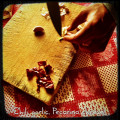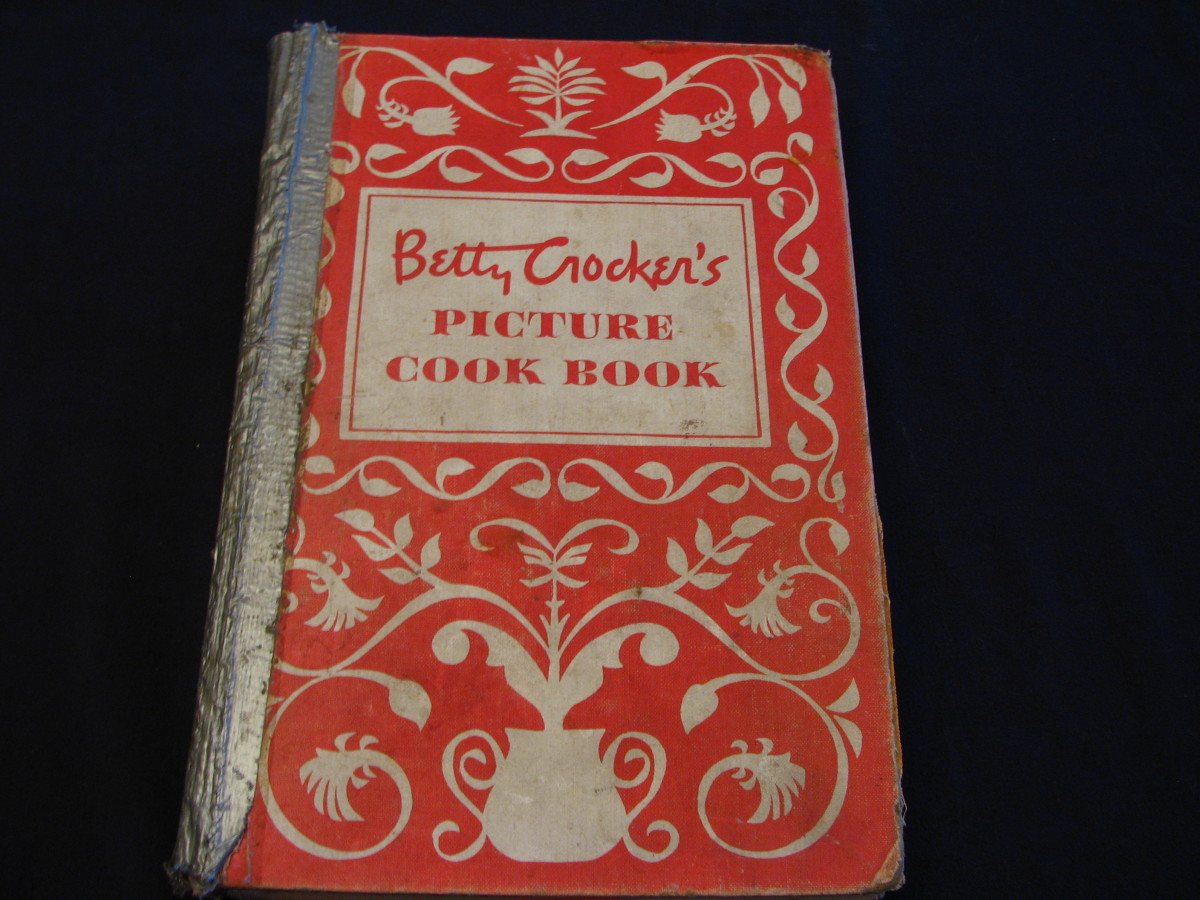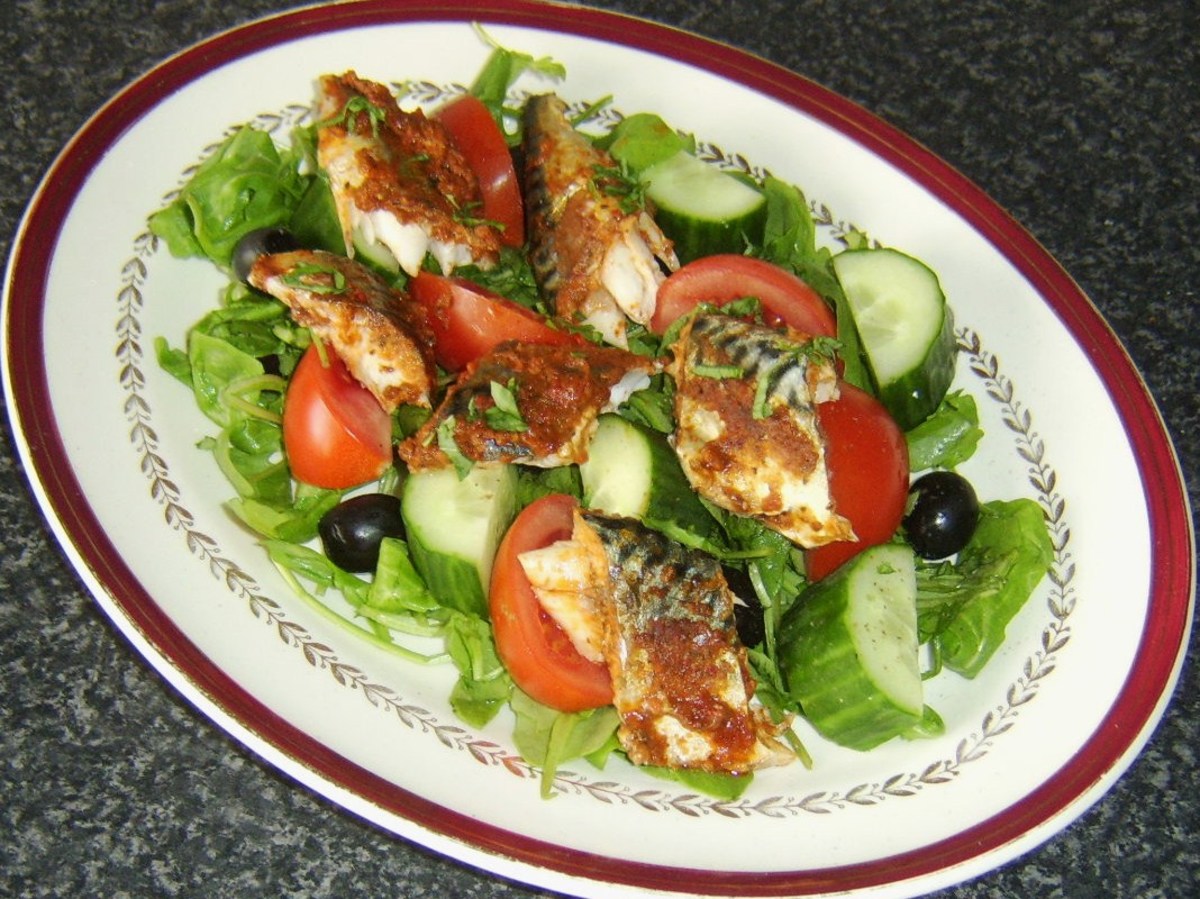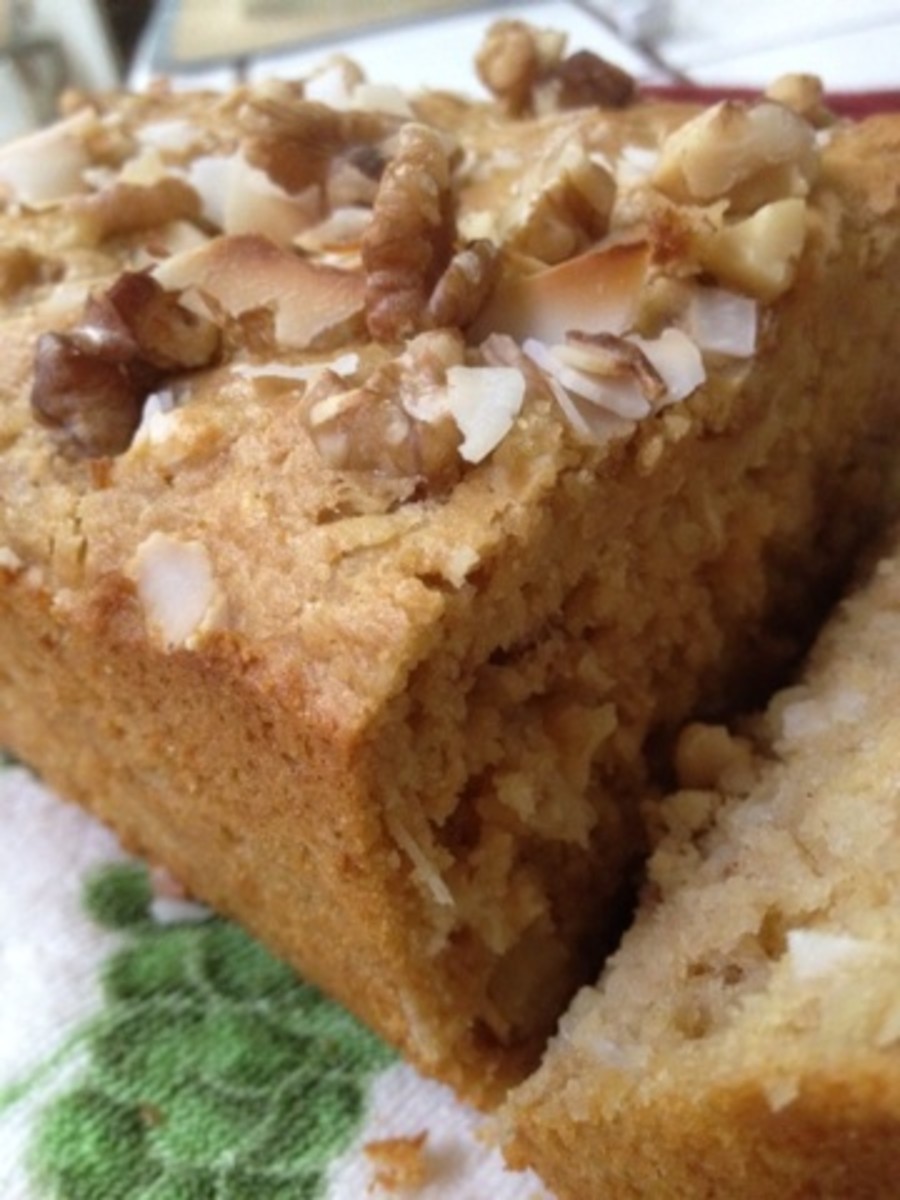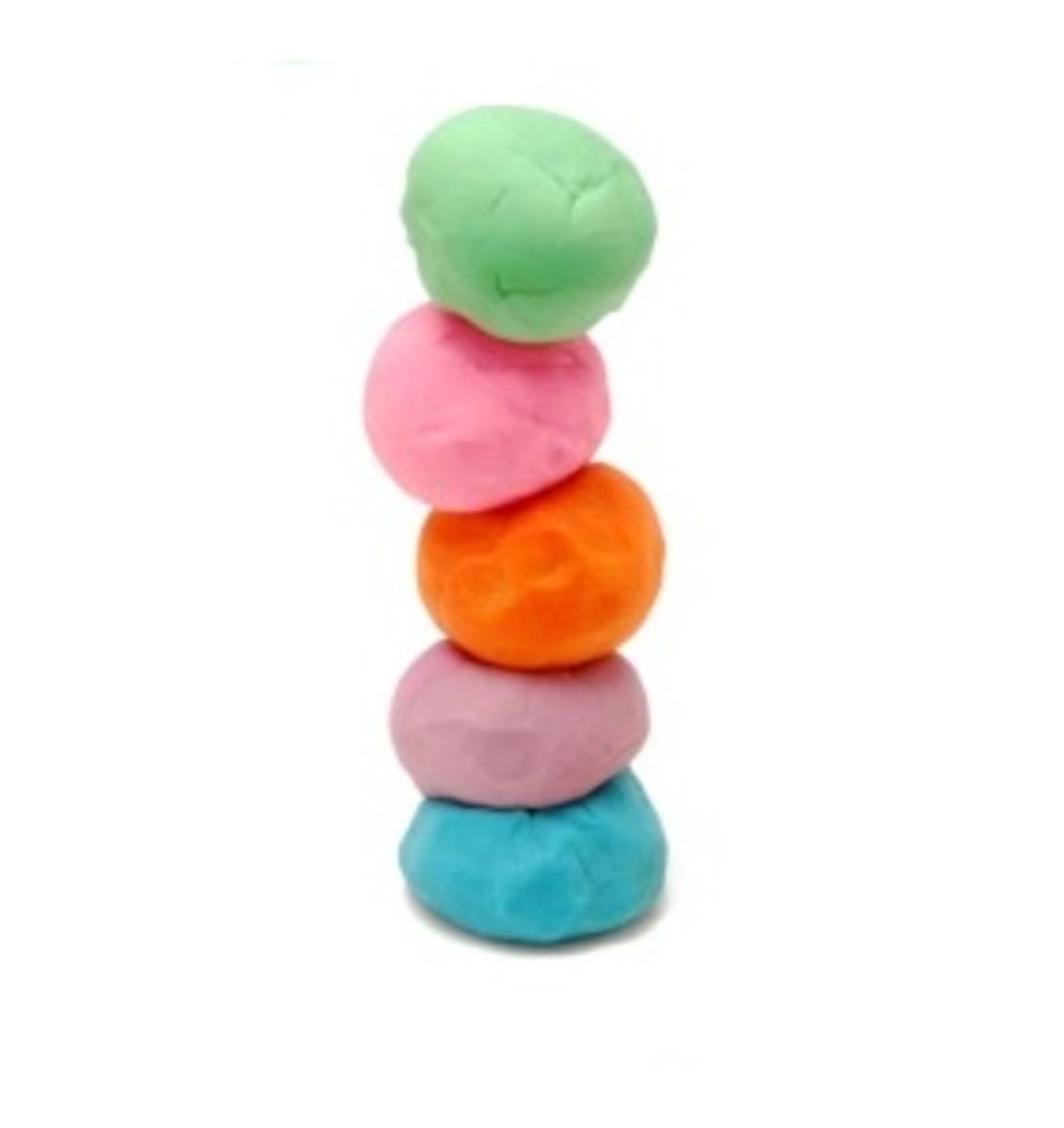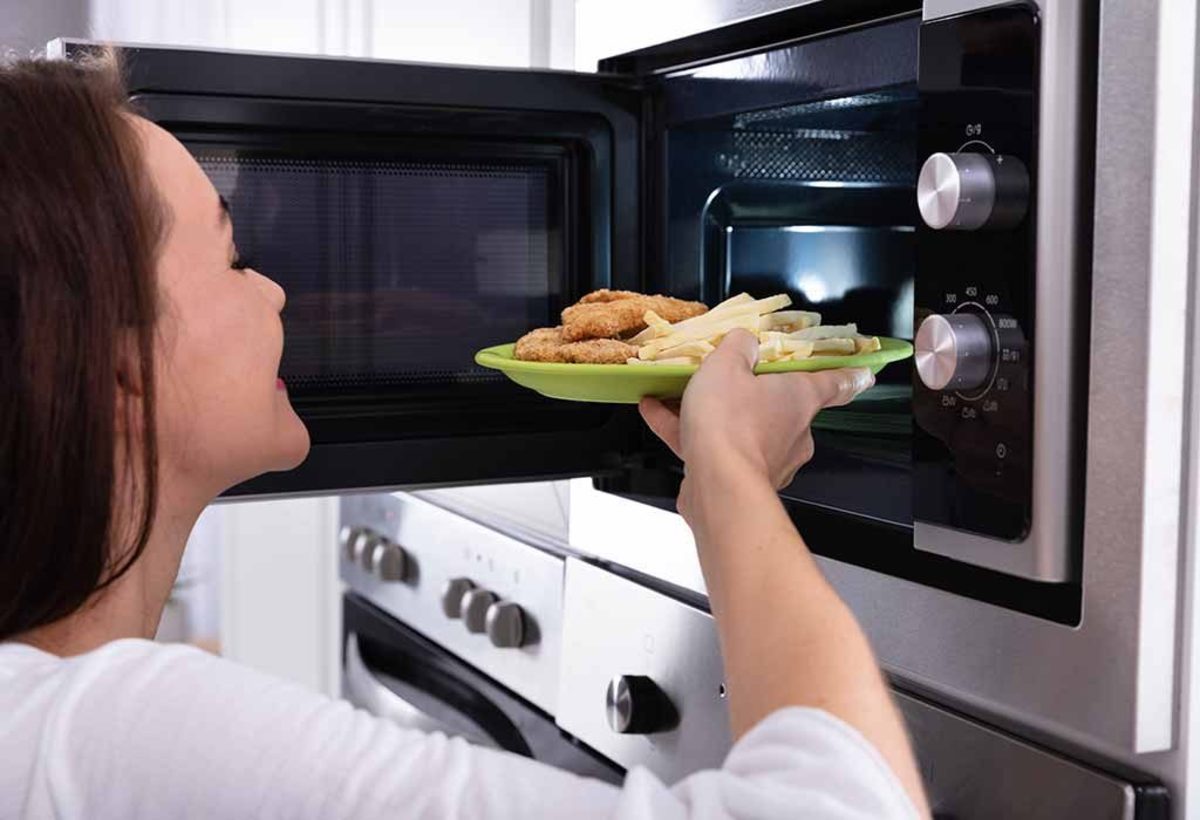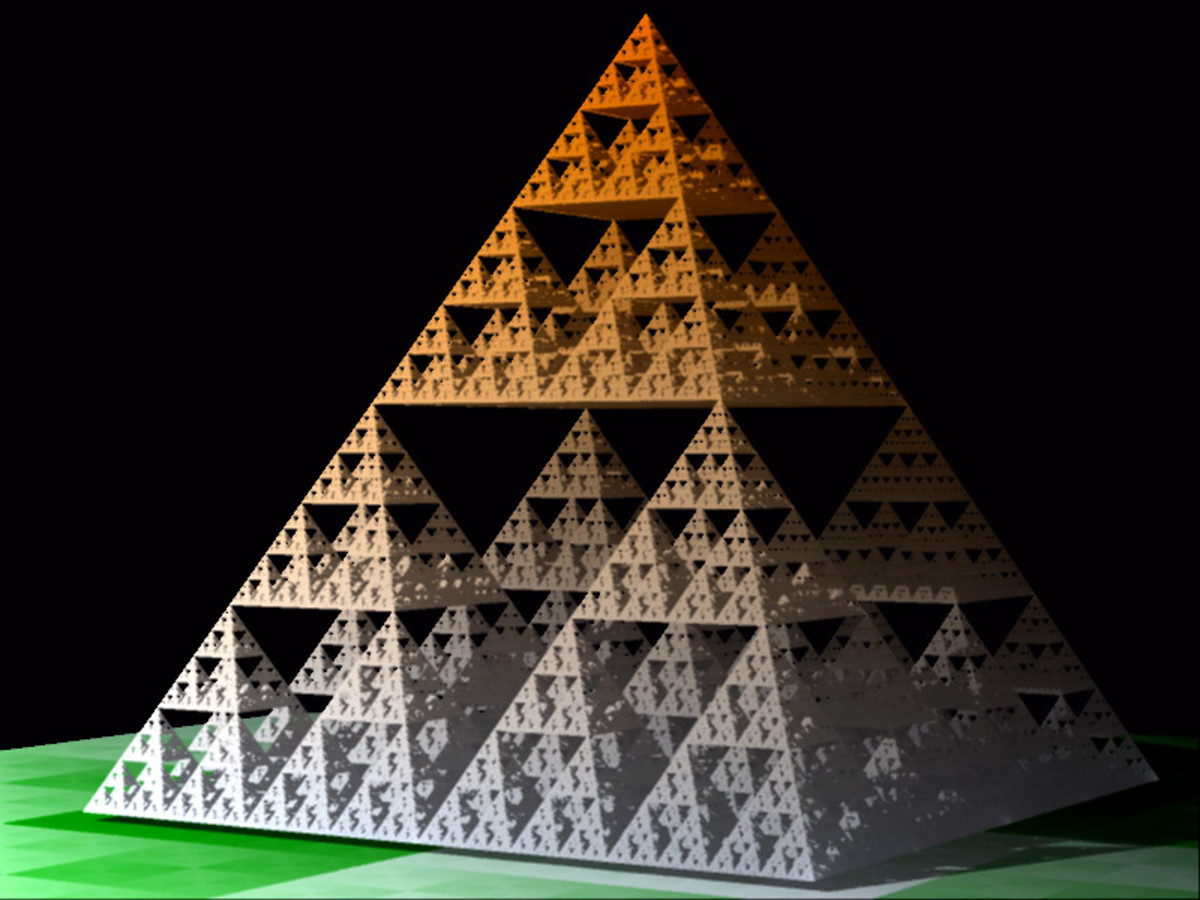How To Do Simple Healthy Cooking
Healthy Cooking - It Is Easier Than You Think
Whether you are trying to revamp your eating habits to lose weight, change your diet or prevent illness - or all of the above - learning to cook healthy food is the greatest gift you can give yourself and your family.
In the long run, if you live a well-rounded life, exercise appropriately, and maintain a healthy diet, you should be able to avoid many of the diseases and conditions that plague our society today.
Part of a healthy diet is learning to cook foods in a manner that induces health and vitality and even though I am an advocate of cooking most things from scratch, even for the busy person with 'no time to spare', there are still healthy alternatives to improve the quality of what you eat without paying a fortune or spending your life in the kitchen.
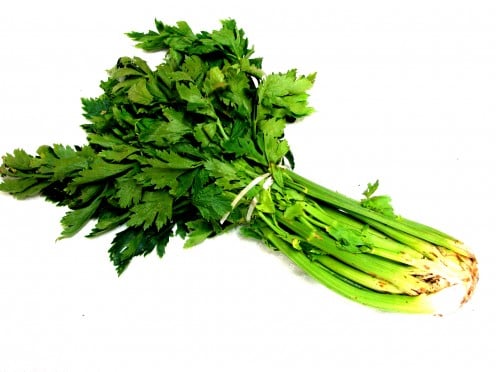
Simple Cooking Techniques
The video Healthy Cooking - Top 10 Tips - Nutrition by Natalie illustrates several of the ways that you can learn to cook a healthier way. There are also many other cooking and health tips on countless subjects by Natalie that spell out quite logically and easily some ways to improve diet and cook in a healthier fashion.
Anyone can change to a healthier way of cooking overnight and it doesn't really require a great amount of skill or research - just start small and see what works best for you. In the long run, any changes you make will have a positive reward.
TIPS FOR HEALTHY PREPARATION OF FOOD
- Steam vegetables whenever possible - you retain more of the food's nutrients
- Incorporate nuts and whole grains into your recipes
- Substitute olive oil or canola oil over other oils and fats
- Keep salt to a minimum in recipes - usually the full amount is way more than necessary
- Substitute honey or other sugar choices instead of sugar
- Use unbleached flour at the minimum and learn to use it in everything
- Add other enriched flours such as oat or wheat to recipes
- Always trim the fat from meats
- Whenever you can, remove the skin from chicken or turkey
- Use junk food sparingly - there is next to no nutritional value in it
- Fresh over canned, frozen over canned whenever possible
- Avoid processed foods - beware of additives, sugar, white flour
- Organic versus non-organic - personal choice and if you can afford it go organic
- Use more fruits and vegetables - keep as close to their natural state as possible
- Use more herbs and spices (fresh and dried) rather than salt
- Use vegetable broth for soups but check sodium content
- Make beef, chicken, fish, or vegetable broth from scratch - freeze extra
Make These Things Yourself
In this day and age of processed foods and anything and everything at our fingertips, I know it seems sometimes tempting but making these things from scratch yourself is not that time consuming and really DOES ramp up the nutritional value. You know what you are eating and you can control calories, fat, cholesterol, sodium intake, etc.
- Soups - most prepared soups are loaded with extra calories, cream, salt
- Breads - most have many ingredients you can't even identify and extra sodium for flavor
- Desserts/Baked goods - the only way to control calories and fat in desserts or baked goods is to know what the content of the finished product contains
- Cereals - oatmeal is still one of the healthiest things you can eat - or make other whole grain cereals or baked granola
- Italian/Mexican/Chinese or other ethnic foods - there are millions of recipes out there and preparing them yourself lets you decide what goes into them
- Lunch meat - you can eliminate lunch meat and all its additives entirely by cooking ahead - roast, chicken, ham, etc cooked from scratch makes an excellent substitute
- Fruit and vegetable snacks - instead of chips or sweets - these add necessary nutrients to your diet and require relatively little preparation. They travel well and can be eaten easily
- Tea or homemade broths as a substitute for soda or caffeine
More Tips on Cooking Healthier
Simple things that you can do to lower calories, reduce fat and add nutritional value:
- Leave the peels on potatoes such as reds or Yukon for cooking - scrub heartily
- Leave the peels on organic carrots - scrub heartily and cook as usual
- Grow your own foods if you can - or at least some of them - healthier product
- Skim soups after cooking to remove fat from top - place in fridge and allow to cool first
- Drain meats after cooking - you remove as much as 350 calories in 3 T grease
- Use center cut bacon - even healthier than turkey bacon and less sodium - less fat
- Add applesauce to recipes to substitute for butter or fat ingredients
- Substitute honey or stevia for sugar in recipes
- Use non-fat plain yogurt instead of sour cream or mayo - also makes a great cheesecake
- Add vegetable purees to soups, baked goods, or serve with meats
- Find out what makes up the food you eat - find more nutritional recipes
- Cook low-sodium hams or products
- Cook with products containing no artificial ingredients or hormones
- Use dried beans and cook from scratch - add to soups or serve instead of rice
- Use wild rice or brown rice instead of white rice
- Use whole wheat or enriched pastas rather than traditional
- Eat at least 1 vegetarian meal per week
How to Find Healthy Recipes
I am a great fan of Cooking Light - the magazine as well as the cookbooks.
I also have another favorite cookbook which is The Best Light Recipe, authored by the folks at cooks.com.
Of course, there is always the internet and you can find just about any recipe you could imagine geared towards any kind of diet - low-fat, low-salt, low-carb, heart healthy, etc.
There is also a great book by Jessica Seinfeld called Deceptively Delicious which gives great advice on eating and nutrition but especially on how to incorporate that into your daily life.
Let's look at a comparison of a recipe - Classic Chicken Enchiladas versus Light Chicken Enchiladas.
Chicken Enchiladas - Classic versus Light
CLASSIC
| LIGHT
| |
|---|---|---|
Calories
| 580
| 350
|
Cholesterol
| 110 mg
| 65 mg
|
Fat
| 34 g
| 10 g
|
Saturated Fat
| 18 g
| 4.5 g
|
How Did They Do It?
(The Best Light Recipe Cookbook)
- Using low-fat cheddar or other cheese
- Using less cheese than the traditional recipe
- Warming tortillas in microwave or oven - sprayed lightly with vegetable oil spray rather than heating them in oil
- Using boneless, skinless chicken rather than chicken thighs with more fat
- Using sauce to poach the chicken rather than frying, sauteing or roasting
As you can see by the above statistics, the recipe is now a healthier way to serve an old favorite. A good way to consider recipes is to look at different cookbooks since they now mostly list all the statistics, and then decide on which ones are healthier and will help you attain your personal dietary and cooking goals. There are many, many classic recipes that have a healthier counterpart - you just have to look until you find one that works for you.
Summing It Up
Getting back to basics is a great way to eat healthier and find new ways to cook healthy food - eating healthier doesn't have to be any less palatable either. You can still enjoy your cake and eat it too, so to speak! By finding healthy alternative recipes to classics, I am able to feel good about cooking for family, friends and myself - it makes me feel good that I am serving things that not only taste wonderful but also are better for us!
There are many other helpful hints on the video above such as adding vegetable broth to soups to replace cream in the recipe, adding flaxseed for a bit of the flour in baked goods, and the baking directions for substituting honey for sugar, as well as yogurt for sour cream and/or mayonnaise. It also gives the proportion for replacing butter and fat in a recipe with applesauce as proportions do matter.
Try some of the new light cooking magazines or cookbooks - even get them from the library and puruse them for ideas. Compare them with 'traditional' cookbooks and see what ideas you can come up with for new and exciting recipes. There is a fountain of information on the Internet as well and I think that is the greatest gift of all - being able to search and come up with a healthy recipe that works or making it work!


